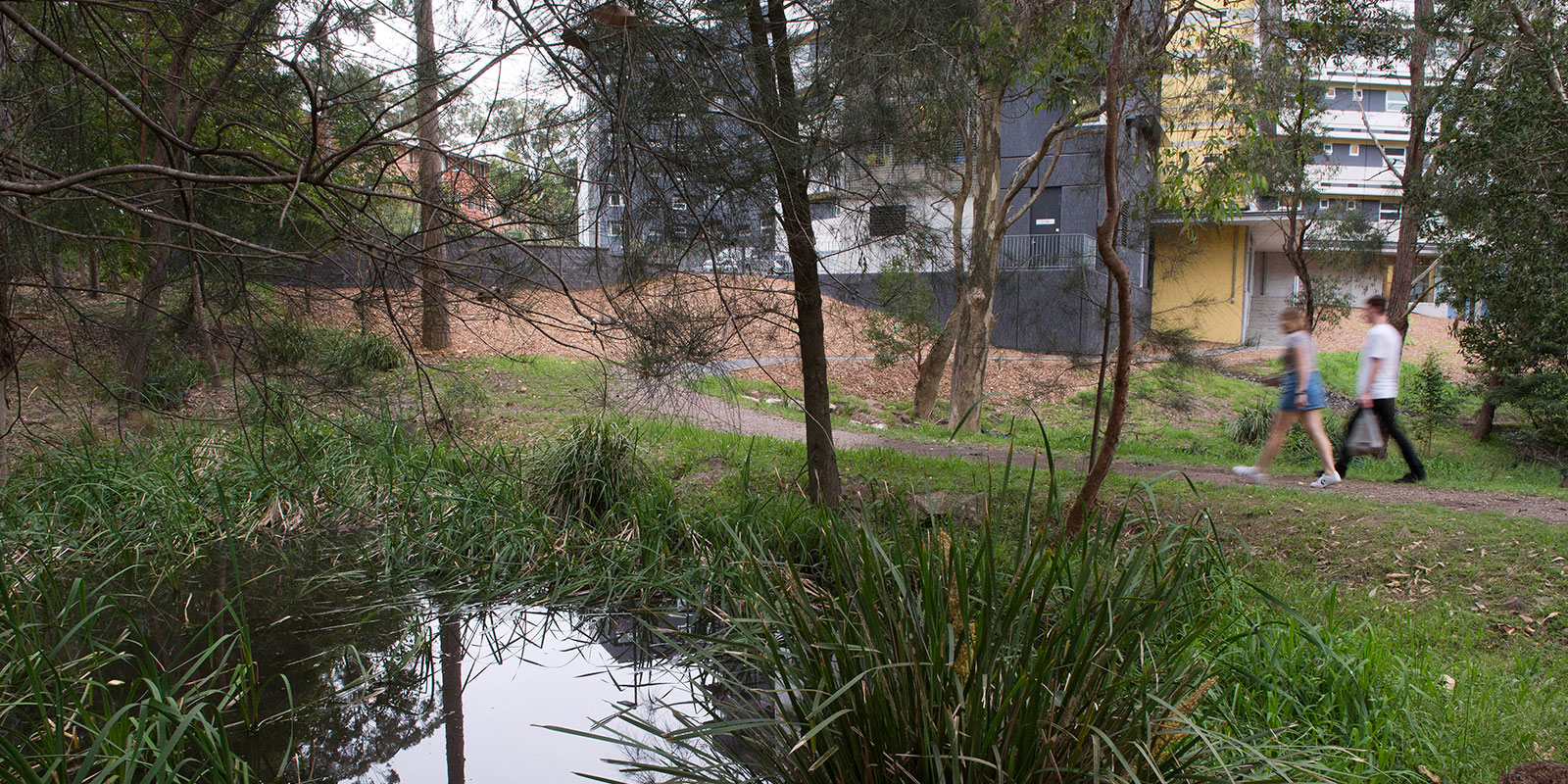

Goal 6:
Clean Water and Sanitation
Water Conscious Plantings
The University of Newcastle actively designs and maintains its landscapes to minimise water usage, reduce maintenance, and manage stormwater effectively. In 2024, this was achieved through a combination of native planting, weed control, and water-sensitive design strategies.
Drought-Tolerant and Native Planting
“The planting strategy aim is to retain, respect and enhance the existing native flora and create a contemporary bushland campus.”
This approach supports the use of drought-tolerant native species, which are naturally adapted to the local climate and require less irrigation and maintenance.
Invasive Weed Management
“Weed management is a key component of landscape maintenance, particularly in bushland areas. The removal of invasive species is essential to protect native biodiversity and maintain the integrity of the landscape.”
The University prioritises removal of invasive weeds to preserve native ecosystems and reduce competition for water and nutrients.
Maintenance and Sustainability
“Landscape maintenance should be efficient and sustainable, with a focus on reducing water use, minimising chemical inputs, and supporting ecological health.”
This includes low-maintenance design principles, such as mulching, minimal turf areas, and the use of hardy plant species.
Stormwater and Runoff Management
“Landscaping should be designed to slow and filter stormwater runoff, using swales, rain gardens, and permeable surfaces where appropriate.”
These water-sensitive urban design (WSUD) elements help reduce erosion, improve water quality, and recharge groundwater.

The University of Newcastle acknowledges the traditional custodians of the lands within our footprint areas: Awabakal, Darkinjung, Biripai, Worimi, Wonnarua, and Eora Nations. We also pay respect to the wisdom of our Elders past and present.